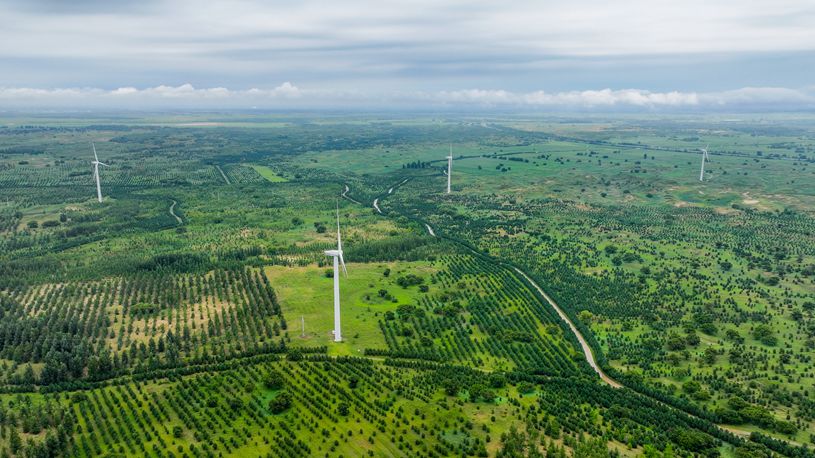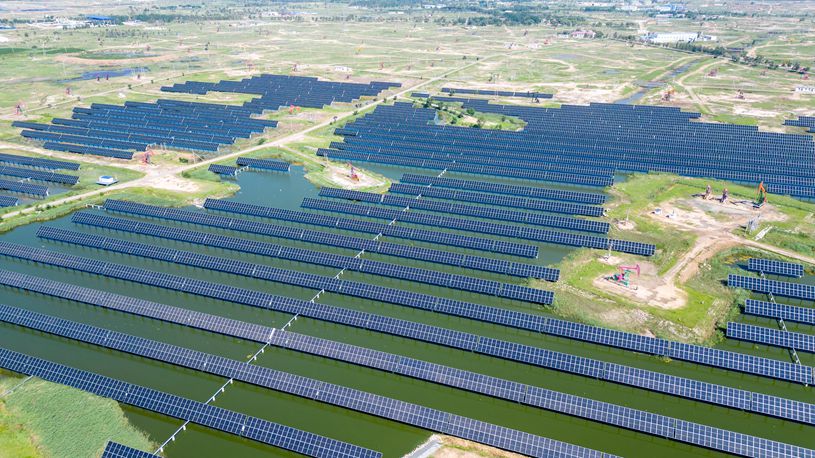3 years on, Afghans cherish peace, wish for economic recovery
Source: Xinhua
Editor: huaxia
2024-08-16 09:57:15
Three years after U.S.-led forces pulled out of Afghanistan, although the security situation has improved significantly, the Afghan people are facing severe economic challenges.
KABUL, Aug. 16 (Xinhua) -- After one day of business slump, Mohammadajan, a street vendor in Afghanistan's capital Kabul, was taking the last opportunity to tout vegetables to sparse shoppers loudly before sunset.
On Aug. 15, 2021, Taliban's force entered Kabul and took over power as U.S.-led forces have withdrawn from Afghanistan.
To celebrate the third anniversary of U.S.-led forces pulling out of Afghanistan, streets and buildings in the capital have been decorated with flags and slogans on the wall reading "congratulation to freedom" and "Afghan nation defeated America".
"That day (three years ago) I heard that the Taliban was going to enter the city and I saw through the window that people on the street were running home in a panic." Mohammadajan reminisced.
But Mohammadajan soon discovered that things did not develop in the bad direction, and Afghanistan finally ushered in three years of relative peace.
"The security situation here has improved 100 percent, and the number of beggars and thieves on the street has also gradually decreased," Mohammadajan told Xinhua.
According to the Global Terrorism Index, terror deaths fell by 519 in Afghanistan in 2023, an 81 percent improvement. This was the first year since 2019 that Afghanistan has not been the country most impacted by terrorism.
"Security has improved compared to the past," Hussain, a dry fruit shopkeeper in Kabul said. "Our shop is open until 12:00 midnight and no one bothers us."
Although the security situation has improved significantly, the Afghan people are facing severe economic challenges.
Over the past two years, Afghanistan's economy has been characterized by a tumultuous downturn, with a staggering 26 percent contraction in real GDP, according to a report released by the World Bank in April.
Currently, turnover has declined 50 percent, said Hussain. "Over the past three years, we don't have any benefit."
According to Hussain, due to economic downturn, people's purchasing power has continued to decline, and prices have also fallen.
"Now violence has decreased and people were relieved to some extent," said Najibullah Arman, an editor of a news organization. "But we can not ignore reconstruction and modernization, aspirations of the Afghan people."
Following the U.S. military withdrawal, Washington has slapped sanctions on the new Afghan administration, freezing Afghanistan's central bank assets worth billions of U.S. dollars and thus plunging the country into an economic crisis.
According to Arman, the sanctions made it difficult for foreign capital to enter Afghanistan, resulting in delay in launch of large-scale investment projects in Afghanistan.
"How can Afghans actually live with these sanctions? I think this is unfair." Arman said, adding that peace is hard-won, and now ordinary people's wish is to find a job and live in peace.■











Comments